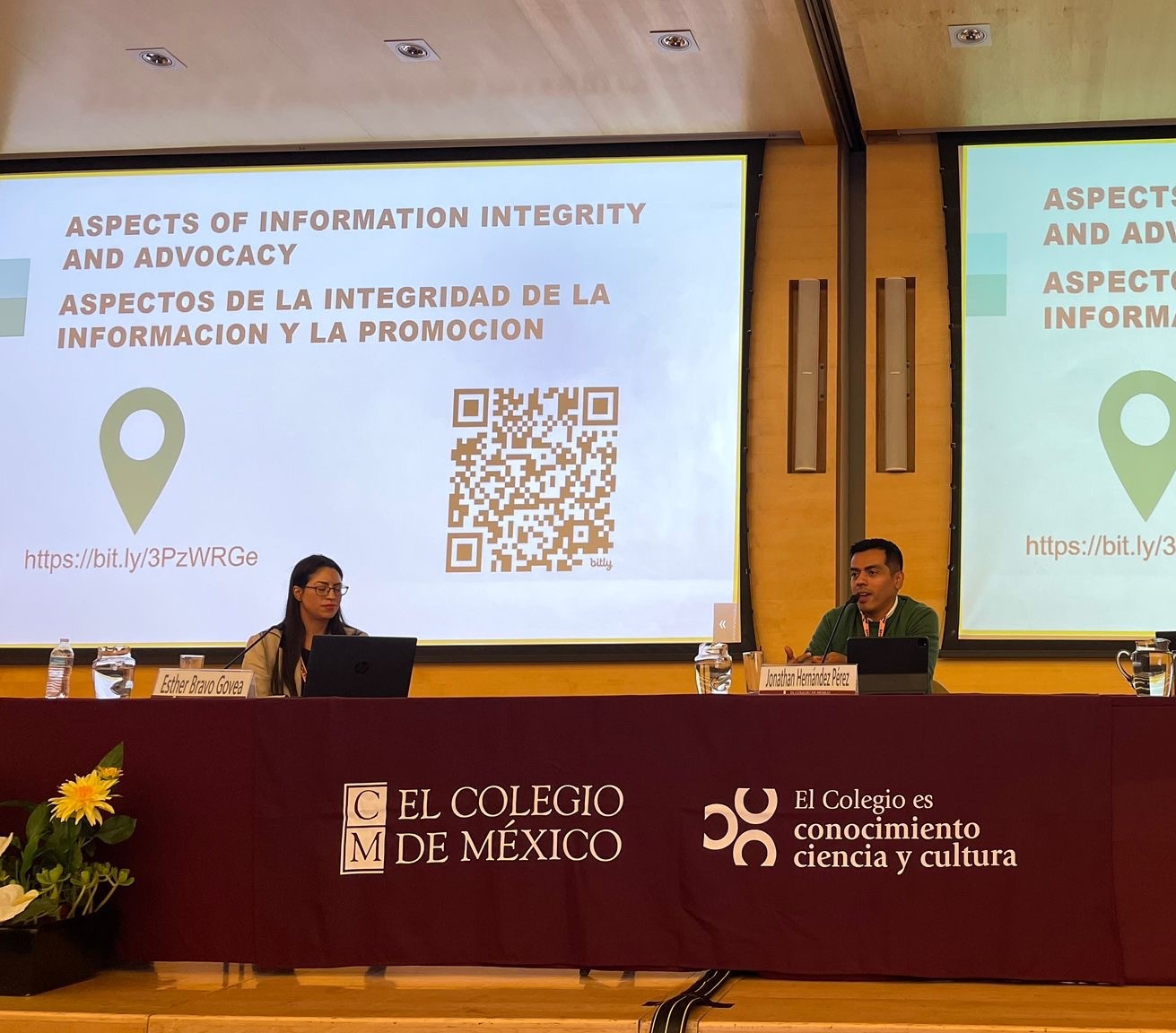Towards a healthy information environment: IFLA session at Wiki+Libraries Conference
17 January 2025
IFLA was happy to join the second Wiki+Libraries conference, held in Mexico City. With the overall theme being the impacts of disinformation, IFLA’s session explored the ingredients of a healthy information environment.
 When the United Nations released its Global Principles on Information Integrity, IFLA welcomed the fact that the importance of access to accurate, reliable and verifiable information had now been recognised at the highest level.
When the United Nations released its Global Principles on Information Integrity, IFLA welcomed the fact that the importance of access to accurate, reliable and verifiable information had now been recognised at the highest level.
At the same point, we underlined concerns at the time that the UN’s approach focused more on addressing problems, rather than building the foundations of a longer-term solution.
Since then, we have seen Meta’s announcement that they will stop using fact-checking on Facebook in the United States, a decision that has raised some speculation about the world moving on from focusing on disinformation as an issue in itself.
The 2nd Wiki+Libraries Conference, taking place on 15-17 January at the Colegio de Mexico in Mexico City, therefore had a very timely focus on disinformation.
IFLA’s session focused on building a shared definition of what a healthy information environment looks like, building on the values and experience of the collective library and Wikimedia communities.
The session was led by Chair of the Advisory Committee on Freedom of Access to Information and Freedom of Expression (FAIFE), Jonathan Hernandez-Perez and Esther Bravo Govea (both from the National Autonomous University of Mexico) with contributions from Raymond Chepkwony, Kenya National Library Service.
Key characteristics of a healthy information environment included a broad definition, taking account of different policy areas and infrastructures. Participants noted the importance of respecting key values, including privacy and diversity, while also finding a balanced approach to questions of safety, which should not become an excuse for excluding the unfamiliar or uncomfortable.
A healthy information environment also requires users to have a stronger sense of agency, combined with information literacy skills and building a sense of curiosity. Similarly, we need to focus on moderation rather than censorship. On the side of information supply, more open access, as well as a diversity of sources would matter. There would need to be tracking of AI models, as well as clarity about where there is a need for expertise.
The discussion then turned to practical steps, that could help bring about a healthy information environment. At a policy level, steps to ensure the accountability of social media companies, promoting and protecting community-led models and spaces, promoting openness through processes like public procurement, funding open access, and using Universal Service Funds to support open content creation came up. The risks of AI, not just to information integrity but also to the environment were also highlighted.
It was also important to avoid misusing terms in political discourse that could end up harming openness, but rather to upgrade education to address not just simply how to spot fake news, but also to address the underlying discourses and attitudes that can make people vulnerable to disinformation.
There were also broader measures, such as education and promoting pro-integrity norms and using disclaimer labels. Practical engagement with Wikipedia could help, with new users learning to improve articles and verify information on Wikimedia projects. Indeed, both communities could learn more about each other in order better to join forces.
Overall, the ideas shared underline that a healthy information environment requires far more than just the regulation of social media companies and other internet platforms. In addition to engaging different policy areas, it also needs different actors, and in particular libraries and Wikimedians who already bring a strong commitment to information integrity in their own practice.